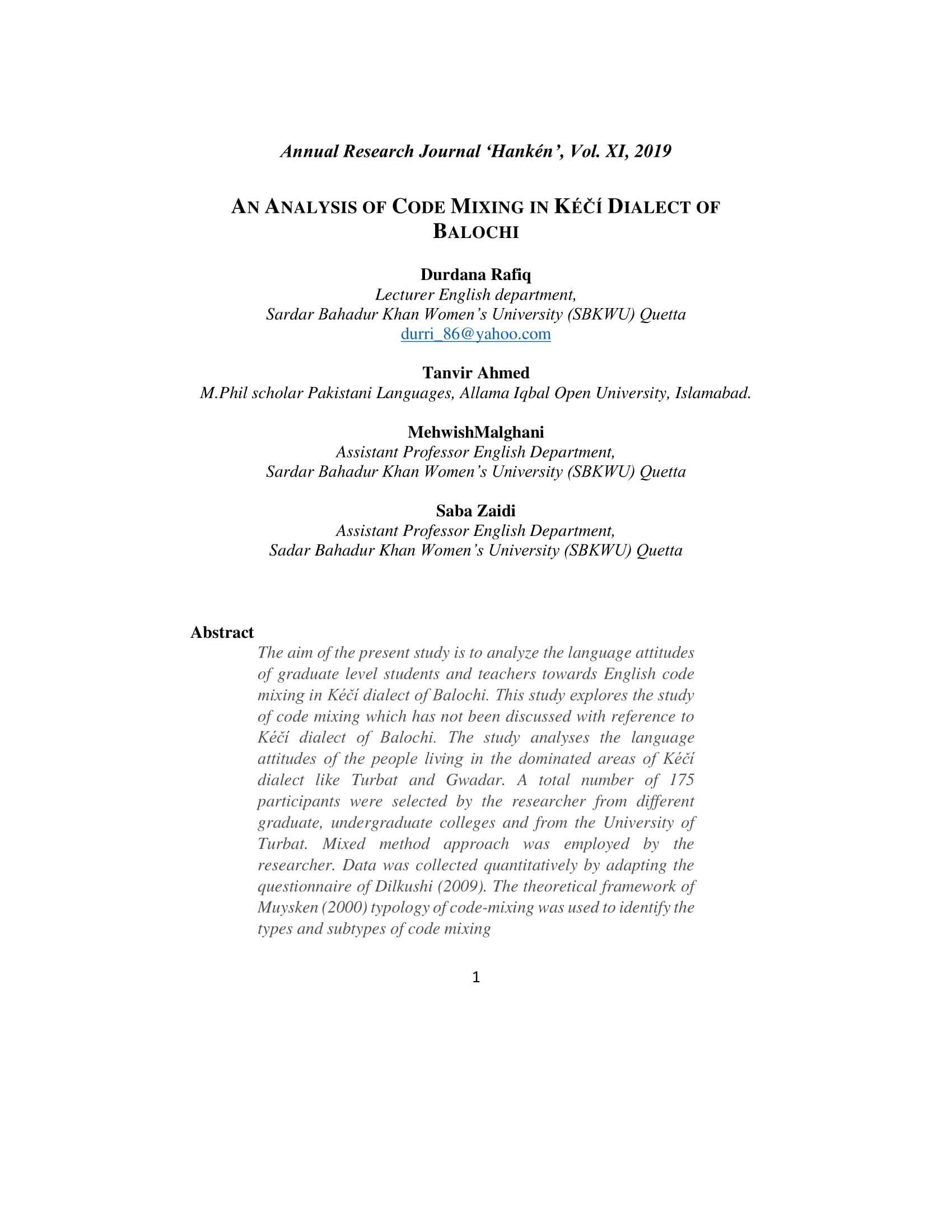AN ANALYSIS OF CODE MIXING IN KÉČÍ DIALECT OF BALOCHI
Keywords:
Kéčí Dialect, Language Attitudes, Western Balochi, Code-switchingAbstract
The aim of the present study is to analyze the language attitudes
of graduate level students and teachers towards English code
mixing in Kéčí dialect of Balochi. This study explores the study
of code mixing which has not been discussed with reference to
Kéčí dialect of Balochi. The study analyses the language
attitudes of the people living in the dominated areas of Kéčí
dialect like Turbat and Gwadar. A total number of 175
participants were selected by the researcher from different
graduate, undergraduate colleges and from the University of
Turbat. Mixed method approach was employed by the
researcher. Data was collected quantitatively by adapting the
questionnaire of Dilkushi (2009). The theoretical framework of
Muysken (2000) typology of code-mixing was used to identify the
types and subtypes of code mixing
The results of the study show that code-mixing is a common process found
among the speakers of Kéčí dialect of Balochi. The results of the study also
reveal that people have positive attitudes towards code mixing in their
personal life
References
Manan, (2014). English Language Teaching in Pakistan: Language
Policies, Delusions Policy, 3(1), 25-46.
Marley, D. (2004). Language attitudes in Morocco following recent changes in
language policy. Language Balam, O. (2015). Overt language
attitudes and linguistic identities among multilingual speakers in Northern
Belize. Studies in Hispanic and Lusophone Linguistics, 6(2),247-278.
Mushtaq, H., & Zahra, T. (2012). An Analysis of Code-Mixing in Television
Commercials. Language
Muysken, P. (2000). Bilingual speech: A typology of code-mixing (Vol. 11).
Cambridge University Press
Yong, Z., & Hong, X. (1987). Language attitudes in Guangzhou, China. Language
in Society, 16(04), 499-508.
Obiols, M. S. (2002) “The Matched Guise Technique: A Critical Approcimationtoa
Classic Test for Formal Measurement of Language Attitudes.”
Redinger, D. (2010). Language attitudes and code-switching behavior in a
multilingual educational context: The case of Luxembourg
Spooner, B. (2011). Balochi: Towards a Biography of the Language. Language
Policy and Language Conflict in Afghanistan and Its Neighbors: The Changing
Politics of Language Choice, 2, 319


